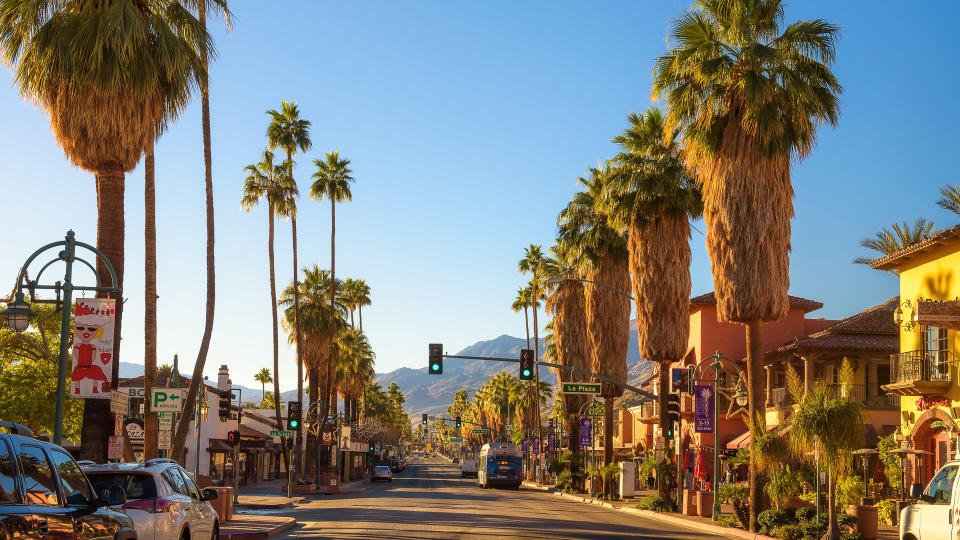6 Cities Middle-Class Retirees Should Avoid at All Costs

Do you dream of retiring somewhere besides where you’ve lived most of your adult life? Whether you are seeking the sand and sunshine or heading to the mountains, you need to consider many factors when choosing a retirement destination.
Find Out: 3 Cities To Retire In That Are as Awesome as Honolulu and San Francisco but Way Cheaper
Be Aware: 7 Common Debt Scenarios That Could Impact Your Retirement — and How To Handle Them
Taxes, housing, healthcare and the cost of living all need to be factored into your decision. Keep reading as we cover six cities middle-class retirees should avoid at all costs.
Wealthy people know the best money secrets. Learn how to copy them.
Miami
Miami is generally loved for its warm weather, beaches, entertainment and culture. However, Miami has a high cost of living. It’s roughly 21% higher than the national average. It also attracts a relatively young demographic seeking its nightclub and party scene. That could make many retirees feel out of place. Miami also has limited public transit options for mobility-limited retirees, a lot of traffic and you must worry about severe weather during hurricane season.
Explore More: 7 Places To Retire That Are Similar to Europe but Way Cheaper
New York City
New York City is the country’s most populated city but is also one of the most expensive. It is hard enough to afford to live in New York City as a middle-class worker, but living there as a middle-class retiree can quickly deplete your retirement savings. Housing prices in New York City are 78% higher than the rest of the country, while groceries are 12% higher than the national average.
While housing costs are extremely high, so are taxes, healthcare and almost everything else. One thing New York City has going for it is its public transportation options, which can be great for retirees who don’t want to drive.
San Francisco
San Francisco and the Bay Area are notorious for having expensive real estate. Unless you already own a home in San Francisco, it’s unlikely that most people will be able to purchase something on a retirement budget. Plus, things like its large homeless population and high crime rates in some areas of the city could make you feel unsafe at times.
“The high cost of living, driven primarily by exorbitant housing prices, makes it difficult for retirees to stretch their savings,” said Dennis Shirshikov, head of growth at GoSummer.com. “For example, the median home price in San Francisco hovers around $1.4 million, making homeownership almost unattainable without substantial financial resources. In addition, daily expenses such as groceries, healthcare, and utilities are also significantly higher compared to the national average.”
Washington, D.C.
Like New York City, Washington, D.C., is an expensive city that middle-class retirees may be unable to afford. According to the Missouri Economic and Research Center, the cost of living in Washington, D.C., ranks only behind Hawaii and California as the most expensive in the country. The Bureau of Economic Analysis estimated the total yearly expenditures for those living in Washington, D.C., to be $78,809.
But on the bright side, there are also plenty of free things to do in the nation’s capital, like visiting museums and national monuments.
Kahului, Hawaii
Although Kahului, Hawaii, is beautiful, it may not be great for retirees. Hawaii has the second-highest income tax in the country, which can be a problem if you plan to continue working during retirement. While Hawaii doesn’t tax Social Security benefits, it does tax other retirement income sources. And you likely won’t be able to afford to live on Social Security alone since the cost of housing in Kahului is so high.
Palm Springs, California
Palm Springs might be on your radar as a place to settle down in retirement because of its frequent sunshine and many popular activities like golfing and hiking. Unfortunately, it’s also not uncommon for the temperatures to be well over 100 degrees for many days in a row.
While Palm Springs is less expensive than other cities in California, it’s still 20% higher than the national average. Plus, many retirees might not enjoy its high 9.25% sales tax.
“Originally developed for Hollywood stars, its distance from major cities can lead to isolation, which might not suit everyone,” said Ryan Carrigan, co-founder and CEO of MoveBuddha. “Plus, utility costs can be high due to the desert climate, particularly cooling expenses during the hot summer months.”
Carrigan added, “Even with Palm Springs homes costing $100,000 less than the average California home, the city still has high real estate prices (over $650,000) compared to the average cost of real estate in the United States (just over $350,000).”
Even though these are some of the most expensive cities to enjoy your retirement, there are reasons why you may still choose them. For example, you might want to be closer to family. If that’s the case, it’s crucial that you’ve saved enough and that you budget your expenses carefully.
More From GOBankingRates
In Less Than a Decade, You Won't Be Able To Afford Homes in These 20 Arizona ZIP Codes
These 10 Used Cars Will Last Longer Than an Average New Vehicle
This article originally appeared on GOBankingRates.com: 6 Cities Middle-Class Retirees Should Avoid at All Costs

 Yahoo Finance
Yahoo Finance 